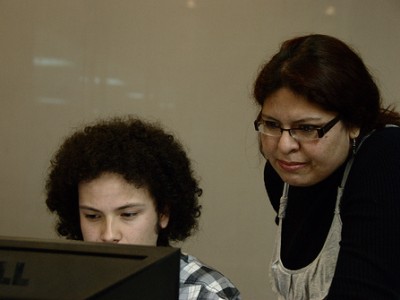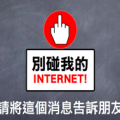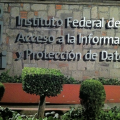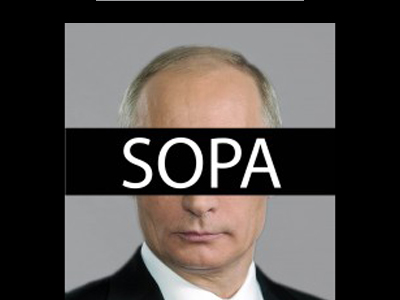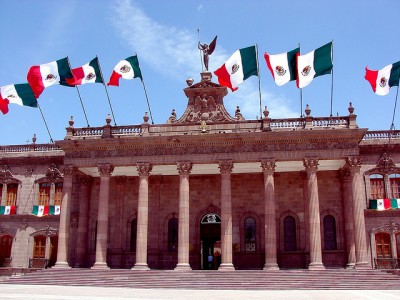Stories about Law from June, 2013
“Advocacy,” yes, that is what we do
Pilar Sáenz, trained physicist and now software and free culture activist, comments on the concept of "advocacy" for digital rights in Colombia and describes the creation and achievements of RedPaTodos, a Colombian civil society group working to promote a free and open Internet.
Taiwan: Internet Policy Reforms Spark Fears of Censorship
Since this spring, the Taiwanese government has proposed multiple policy reforms that have sparked concerns of Internet censorship among Taiwanese netizens. Some are comparing these amendments to Chinese-style speech control, while others have observed the influence of the United States behind the legislation.
Nepali Journalists Arrested for Reporting on College Students’ Sex Lives
Three Nepali journalists were arrested on charges of publishing indecent and defaming content online. Police took them into custody after officials at a public university complained that the journalists had written about female students using eggplants as sex toys.
China: Real Name Registration May Threaten Ethnic Minorities
Under China's new real name registration policy, Internet users are being asked to submit personal information such as their home address, national ID number, and a photograph, in order to register for social media services. A recent case illustrates how some platforms may be using this new information to discriminate against Uyghurs, an ethnic minority group.
Mexico: Advocates Demand Investigation of FinFisher Spyware
Human rights activists and journalists in Mexico are demanding an investigation of the possible use of FinFisher surveillance software in Mexico. Advocates suspect that the software has been used to spy on journalists and activists in the country.
Vietnam: Bloggers Arrested, Accused of Spreading “Anti-State” Propaganda
Three prominent bloggers in Vietnam have been arrested in less than a month. All three are accused of spreading anti-state propaganda.
VIDEO: Experts Speak on Role of Whistleblowers
The revelations of the recent NSA leaks are explosive, but Edward Snowden is not the first whistleblower to leak information to the public about government operations. Oxford-based project Free Speech Debate interviewed several former intelligence professionals and whistleblowers who discussed reasons for and against going public with sensitive information.
Orphaned in US, SOPA Finds Home in Russia
America’s controversial Stop Online Piracy Act is back—and it’s poised to become law in a matter of weeks. SOPA, however, isn’t coming to the US, where a wide coalition defeated the legislation in January 2012. A law that creates similarly harsh penalties for online copyright violations is on the cusp of finding a home in Russia.
Everyone's Rights are at Stake: Global Reach of US Surveillance Programs
Last week's revelations about phone and Internet surveillance programs run by the US government's National Security Agency (NSA) sent shock waves throughout the United States and the western media, but also around the globe. While in the US, many privacy-minded lawmakers and even digital rights advocates used the news as an opportunity to demand better protections for Americans' online privacy, Internet users worldwide were left wondering how to protect their own data in the face of these threats.
US Spying Whistleblower Edward Snowden Takes Refuge in Hong Kong
The man behind the bombshell intelligence leaks that revealed top secret US phone and Internet surveillance programs said he fled to Hong Kong because they "have a spirited commitment to free speech and the right of political dissent". But some in Hong Kong aren't so sure about the government's willingness to him.
Singapore’s ‘Largest Blogger-led Protest’ Bats for Media Freedom
An estimated crowd of 2,000 people joined a protest assembly in Singapore’s Hong Lim Park last June 8, 2013 to oppose the government’s new licensing scheme for news websites. Organized by the ‘Free My Internet’ movement, it was reported to be the ‘largest blogger-led protest’ in Singapore.
The Business Behind China's Internet Real Name Registration System
One company stands to profit in a big way as China pushes forward with a policy to require Internet users to register their real names and their national identification numbers in order to participate online.
Philippines Offers ‘Enhanced’ Cybercrime Prevention Law
The Philippine government is ready to submit an ‘enhanced version’ of the controversial Cybercrime Prevention Act in response to the widespread opposition to the law, saying it will drop the online libel provision in order to focus on organized cybercrimes. Some groups welcomed the news, but others still pressed for the whole law to be scrapped.
‘Free My Internet’ Movement Rises in Singapore
A new licensing scheme for news websites announced by Singapore's Media Development Authority has been denounced by many as a censorship measure. A group of concerned netizens calling themselves the ‘Free My Internet’ movement has invited the public to join a rally this coming Saturday to demand the withdrawal of the controversial regulation.
Mexico: Local Cyberbullying Law Could Threaten Free Expression
In the Mexican state of Nuevo León, as of last week, anyone who uses social networks to publish messages or images that cause "harm, dishonor, discredit to a person, or exposes him or her to contempt" can be incarcerated for up to three years.

